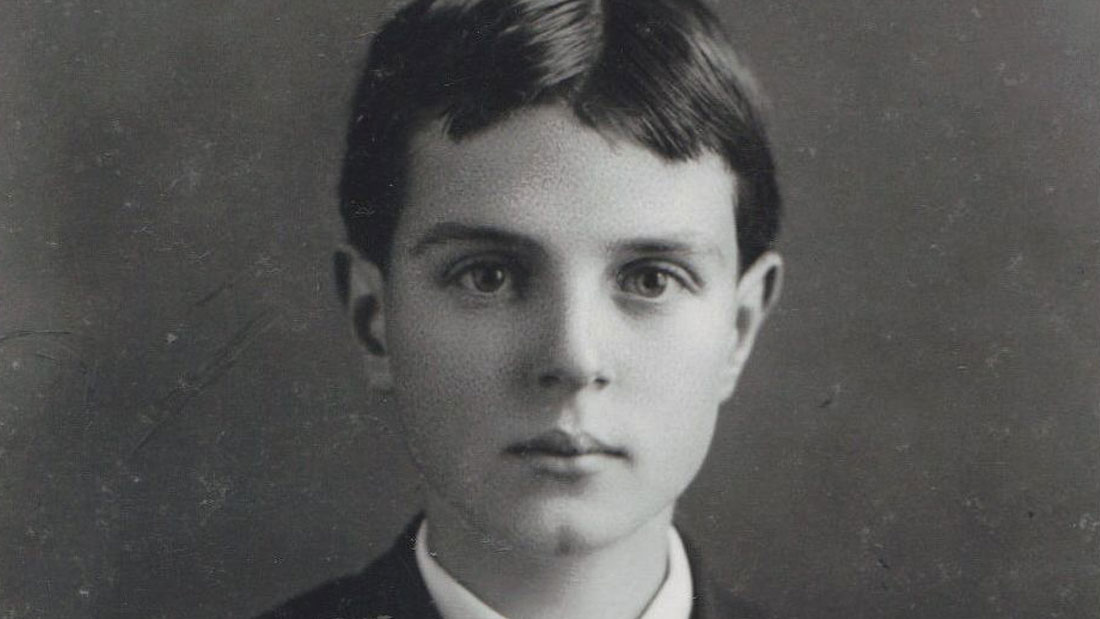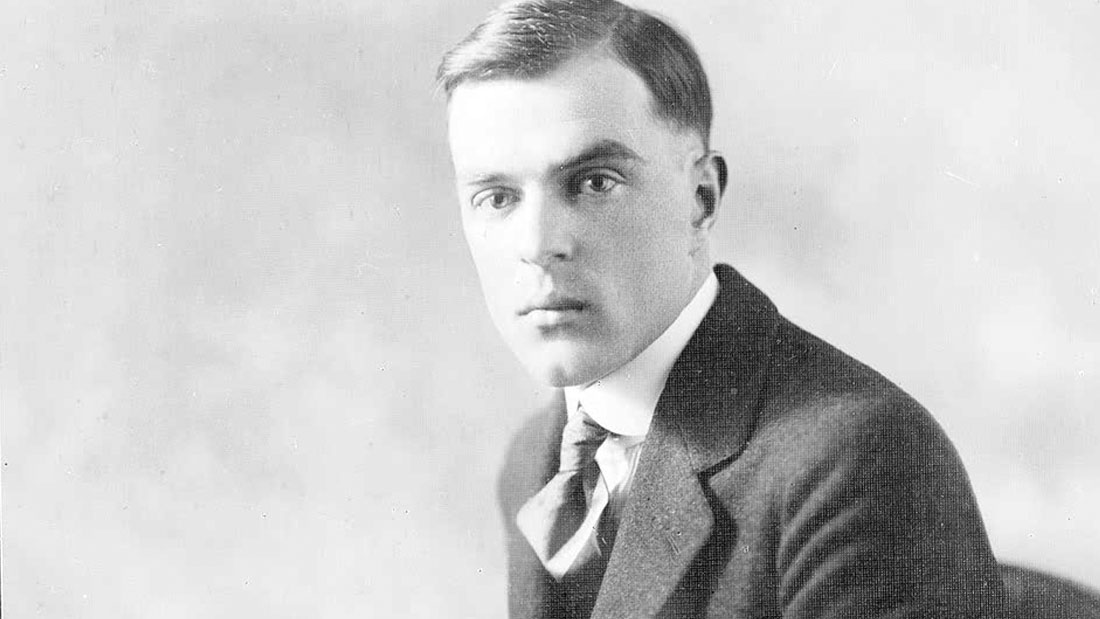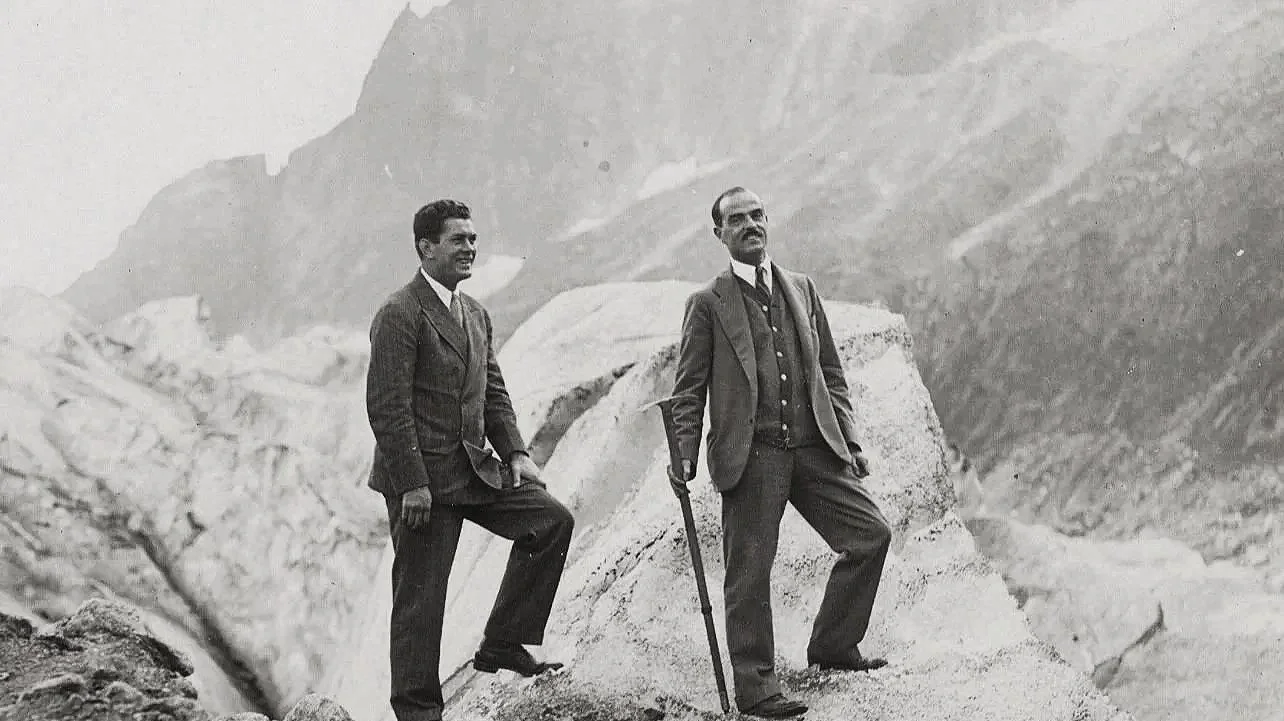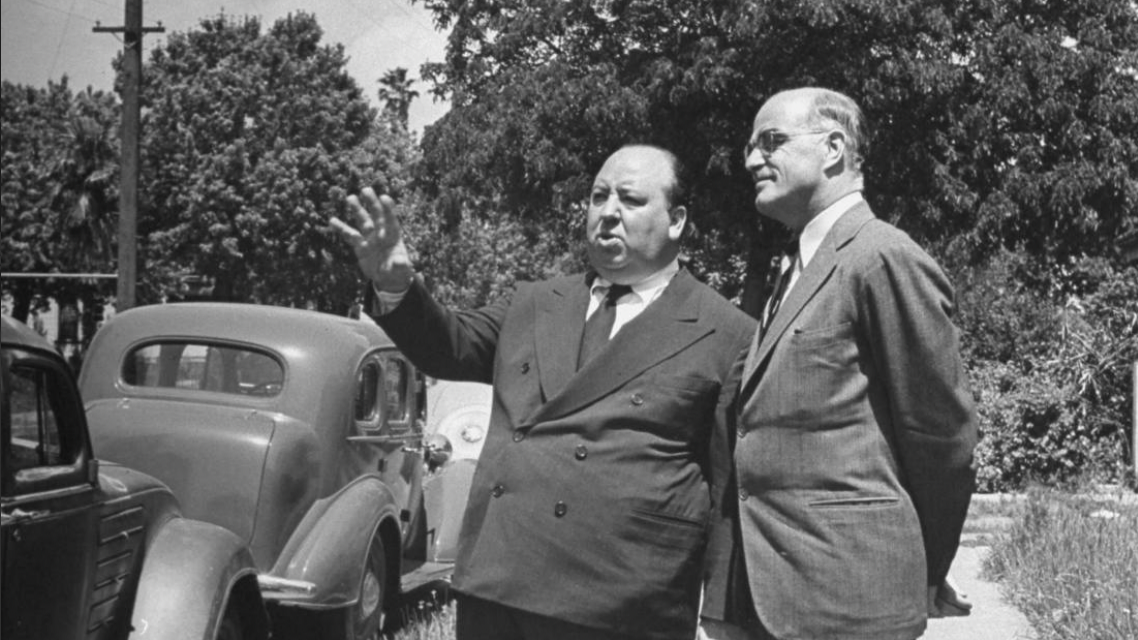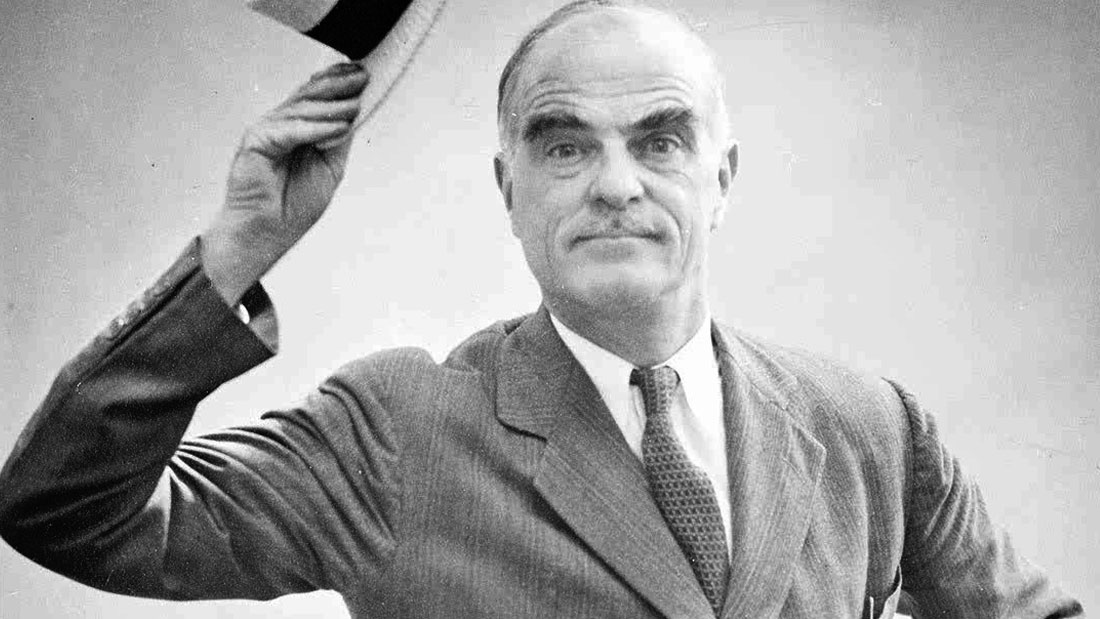THORNTON WILDER
Thornton Wilder (1897-1975) is the only writer to win Pulitzer Prizes for both drama (Our Town and The Skin of Our Teeth) and fiction (The Bridge of San Luis Rey). He collaborated with Alfred Hitchcock on Shadow of a Doubt, hiked the Alps with the heavyweight boxing champion Gene Tunney, received a bronze star for his service in World War II, and was credited with discovering Orson Welles. He was also a much-loved teacher, letter-writer (especially with Gertrude Stein), and public speaker--in four languages. Hello, Dolly! is based on his play The Matchmaker. Read more about his exciting life below.
Thornton Wilder was a pivotal figure in the literary history of the twentieth-century. He is the only writer to win Pulitzer Prizes for both fiction and drama. He received the Pulitzer for his novel The Bridge of San Luis Rey (1927) and the plays Our Town (1938) and The Skin of Our Teeth (1942). His other best-selling novels include The Cabala, The Woman of Andros, Heaven’s My Destination, The Ides of March, The Eighth Day and Theophilus North. His other major dramas include The Matchmaker (adapted as the musical Hello, Dolly!) and The Alcestiad. The Happy Journey to Trenton and Camden, Pullman Car Hiawatha and The Long Christmas Dinner are among his well-known shorter plays.
Wilder’s many honors include the Gold Medal for Fiction from the American Academy of Arts and Letters, the Presidential Medal of Freedom, the National Book Committee’s Medal for Literature and the Goethe-Plakette Award (Germany).
Wilder was born in Madison, Wisconsin, on April 17, 1897. He spent part of his boyhood in China and was educated principally in California, graduating from Berkeley High School in 1915. After attending Oberlin College for two years, he transferred to Yale, where he received his BA in 1920. His post-graduate studies included a year spent studying archaeology and Italian at the American Academy in Rome (1920-21) and graduate work in French at Princeton (Master’s degree, 1926).
In addition to his talents as a playwright and novelist, Wilder was an accomplished essayist, translator, research scholar, teacher, lecturer, librettist and screenwriter. In 1942, he teamed up with Alfred Hitchcock on the classic psycho-thriller Shadow of a Doubt. Versed in foreign languages, he translated and adapted plays by Ibsen, Sartre and Obey. He read and spoke German, French and Spanish, and his scholarship included significant research on James Joyce and Lope de Vega.
Wilder enjoyed acting and played major roles in several of his plays in summer theater productions. He also possessed a life-long love of music and wrote librettos for two operas, one based on The Long Christmas Dinner (composer Paul Hindemith) and the other based on The Alcestiad (composer Louis Talma).
One of Wilder’s deepest passions was teaching. He began this career in 1921 as an instructor in French at The Lawrenceville School in New Jersey. During the 1930’s he taught courses in Classics in Translation and Composition at the University of Chicago. In 1950–51, he served as the Charles Eliot Norton Professor of Poetry at Harvard.
During WWII, Wilder served in the Army Air Force Intelligence. He was awarded the Legion of Merit Bronze Star, the Legion d’honneur and the Order of the British Empire.
In 1930, with the royalties received from The Bridge of San Luis Rey, Wilder built a home for himself and his family in Hamden, Connecticut. Although often away from home, restlessly seeking quiet places in which to write, he always returned to “The House The Bridge Built.” He died here on December 7, 1975.
More information on Thornton Wilder and his family is available in Penelope Niven’s definitive biography, Thornton Wilder: A Life (2013).

